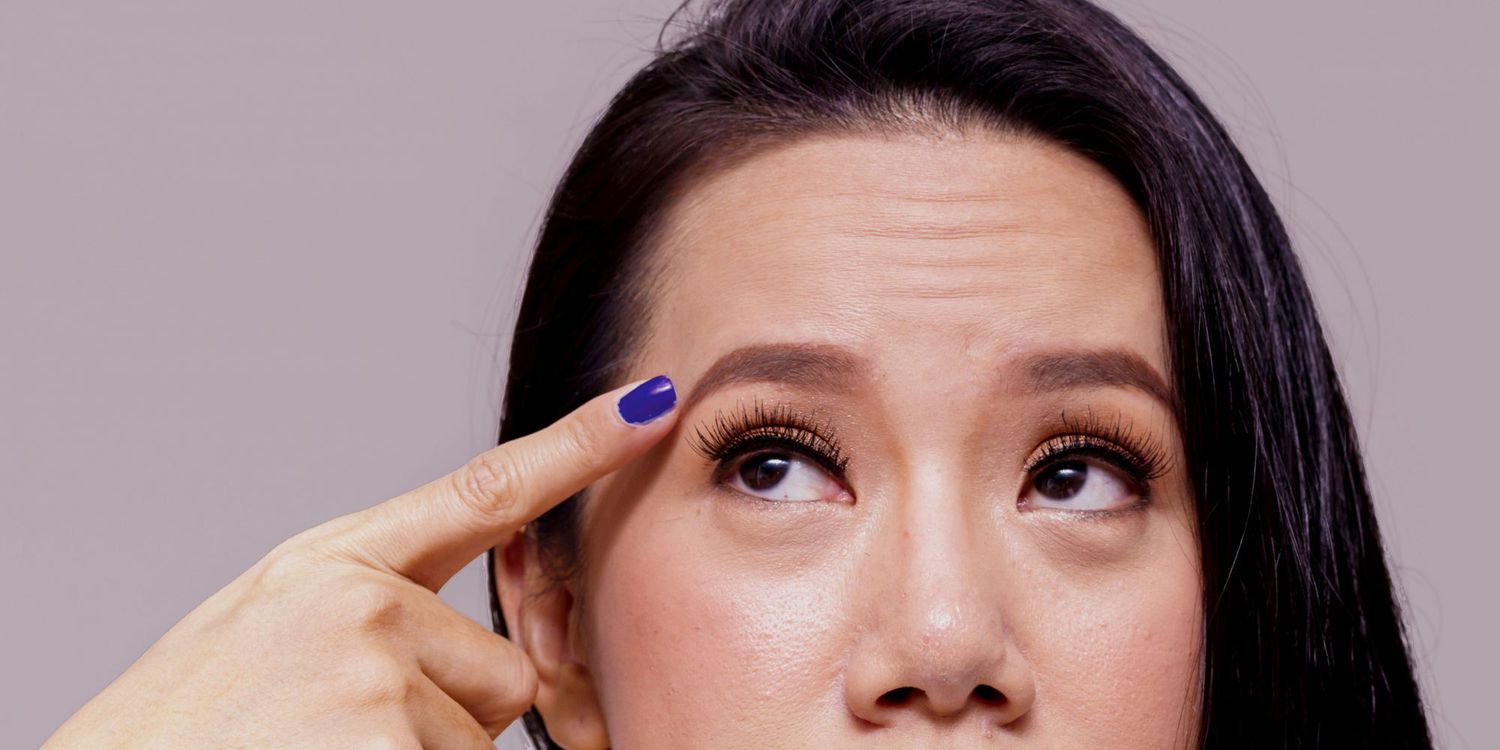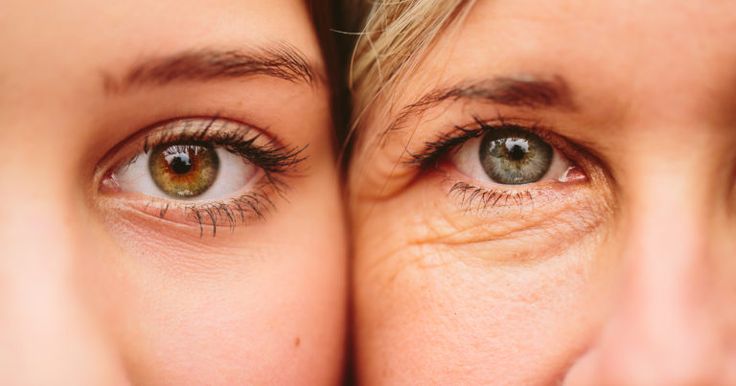Wrinkles are a natural part of the aging process, but there are many surprising factors that can accelerate the formation of fine lines, deep wrinkles, and other signs of skin aging. These are some of the causes of wrinkles on face which are discussed below:
In this article, we will explore 6 surprising causes of wrinkles and provide tips on how to combat them.
From lack of sleep and environmental factors to stress and dehydration, these factors can have a significant impact on the health and appearance of your skin.
By understanding the causes of wrinkles and taking steps to combat them, you can maintain a more youthful, radiant complexion and feel confident in your skin.

So, let’s dive in and explore the surprising causes of wrinkles and how to prevent them.
Lack of Sleep and Its Impact on Skin Aging
Lack of sleep is a common issue that affects many people, and it can have a surprising impact on skin aging.
When you don’t get enough sleep, your body produces more cortisol, a stress hormone that can break down collagen, a protein that gives your skin its elasticity and smoothness.
As a result, your skin can become less supple, leading to the formation of fine lines, wrinkles, and other signs of aging.
Lack of sleep can also affect the natural repair and regeneration process that occurs while you’re asleep. During deep sleep, your body produces more growth hormone, which helps repair and regenerate skin cells, leading to a more youthful, radiant complexion.
Without enough sleep, your body produces less of this hormone, which can slow down the skin’s natural healing process and lead to a dull, tired-looking complexion.
To combat the effects of lack of sleep on your skin, it’s essential to prioritize getting enough sleep each night.
Experts recommend getting between 7-9 hours of sleep per night to help your body produce enough growth hormone to repair and regenerate your skin.
You can also try incorporating skin care products that contain retinoids, a type of vitamin A that helps increase collagen production and reduce the appearance of fine lines and wrinkles.
In addition to getting enough sleep and using skin care products, it’s important to practice good sleep hygiene to promote quality sleep.
This can include setting a consistent sleep schedule, avoiding caffeine and alcohol before bedtime, and creating a calming sleep environment by keeping your bedroom dark, cool, and quiet.
By prioritizing sleep and taking steps to combat the effects of lack of sleep on your skin, you can maintain a more youthful, radiant complexion and feel confident in your skin.
Effects of Smoking and Nicotine on Skin Elasticity and Texture
Smoking and nicotine use can have a significant impact on the health and appearance of your skin. Nicotine is a vasoconstrictor, which means it constricts the blood vessels in your skin, leading to a decrease in blood flow and oxygen delivery.
This can lead to a dull, sallow complexion and the formation of fine lines and wrinkles on face.

Smoking and nicotine use also increase the production of free radicals in your body, which can damage collagen and elastin, two proteins that are crucial for maintaining the elasticity and texture of your skin.
When these proteins are damaged, your skin can become less supple and more prone to wrinkles and sagging.
To combat the effects of smoking and nicotine on your skin, the most effective solution is to quit smoking or using nicotine products altogether.
By quitting, you can increase blood flow and oxygen delivery to your skin, leading to a more vibrant, youthful complexion. You can also try incorporating antioxidant-rich foods into your diet, such as leafy greens, berries, and nuts, which can help neutralize free radicals and protect collagen and elastin.
In addition to quitting smoking and incorporating antioxidant-rich foods into your diet, it’s essential to protect your skin from further damage by wearing sunscreen and avoiding excessive sun exposure.
Sun damage can exacerbate the effects of smoking and nicotine on your skin and lead to the formation of even more wrinkles and fine lines.
By taking steps to combat the effects of smoking and nicotine on your skin, you can maintain a more youthful, radiant complexion and feel confident in your skin.
The Connection Between Diet and Wrinkles on Face
The foods you eat can either support or damage the natural processes that keep your skin looking youthful and radiant.
For example, foods that are high in sugar and refined carbohydrates can cause inflammation in the body, which can lead to the breakdown of collagen and elastin in your skin. This can result in the formation of wrinkles, fine lines, and sagging skin.
On the other hand, a diet that’s rich in antioxidants, healthy fats, and essential nutrients can help support the natural processes that keep your skin looking youthful and radiant.
Foods that are high in vitamin C, for example, can help boost collagen production and protect against sun damage, while foods that are rich in omega-3 fatty acids can help keep your skin hydrated and supple.
To combat the effects of a poor diet on your skin, it’s important to focus on incorporating more nutrient-dense foods into your diet, such as leafy greens, berries, fatty fish, and nuts.
You can also try reducing your intake of processed and sugary foods, which can cause inflammation and damage to your skin over time.
In addition to focusing on a nutrient-dense diet, it’s essential to stay hydrated by drinking plenty of water each day.
Hydration is crucial for maintaining the elasticity and texture of your skin, and it can also help reduce the appearance of fine lines and wrinkles.
By taking steps to improve your diet and stay hydrated, you can support the natural processes that keep your skin looking youthful and radiant.
By nourishing your skin from the inside out, you can combat the effects of a poor diet on your skin and maintain a more vibrant, youthful complexion.
Environmental Factors: Sun Exposure, Pollution, and Skin Damage
Over time, these factors can cause damage to the skin, leading to the formation of wrinkles, age spots, and uneven texture.
Sun exposure is one of the primary causes of skin damage, as it can lead to the breakdown of collagen and elastin in your skin.
This can result in the formation of wrinkles, fine lines, and sunspots. To protect your skin from sun damage, it’s important to wear sunscreen with a minimum SPF of 30 and to avoid excessive sun exposure, particularly during peak hours of the day.
Pollution is another environmental factor that can contribute to skin damage. Pollution can cause free radicals in the skin, leading to oxidative stress and inflammation. This can result in the breakdown of collagen and elastin in the skin, leading to wrinkles, fine lines, and uneven texture.
To protect your skin from pollution, it’s important to cleanse your skin regularly and to use a moisturizer that contains antioxidants.
To combat the effects of environmental factors on your skin, it’s important to take steps to protect your skin from sun damage and pollution. You can also incorporate skincare products that contain antioxidants and other nourishing ingredients, such as vitamin C, vitamin E, and hyaluronic acid.
These ingredients can help support the natural processes that keep your skin looking youthful and radiant, even in the face of environmental stressors.
By taking steps to protect your skin from environmental factors, you can maintain a more vibrant, youthful complexion and reduce the appearance of wrinkles and other signs of aging. With the right skincare routine and protective measures, you can keep your skin looking its best for years to come.
Dehydration and Its Effects on Skin Health and Appearance
When your body is dehydrated, your skin can become dry, tight, and flaky, which can lead to the formation of wrinkles and fine lines.
Water is essential for maintaining the elasticity and suppleness of your skin, as it helps to plump up the skin cells and reduce the appearance of fine lines and wrinkles.
When your body is dehydrated, your skin can lose its natural moisture and become more susceptible to damage from the environment.
To combat the effects of dehydration on your skin, it’s important to stay hydrated by drinking plenty of water each day.
The amount of water you need may vary depending on your activity level, climate, and other factors, but a good rule of thumb is to aim for at least eight glasses of water per day.
In addition to staying hydrated, it’s important to use skincare products that can help hydrate and nourish your skin.
Look for moisturizers that contain ingredients such as hyaluronic acid, glycerin, and ceramides, which can help to lock in moisture and keep your skin looking plump and hydrated.
By staying hydrated and using the right skincare products, you can combat the effects of dehydration on your skin and maintain a more youthful, radiant complexion.
With a little extra attention to your hydration levels, you can keep your skin looking its best and minimize the appearance of wrinkles and fine lines.
How Hormonal Changes Affect the Skin and Contribute to Wrinkles
As you age, your body undergoes a natural decline in hormone production, particularly in estrogen and testosterone. This decline can lead to a reduction in collagen production, which can cause your skin to become thinner, drier, and more prone to wrinkles.
Estrogen is particularly important for maintaining the elasticity and firmness of your skin.
As estrogen levels decline, the skin can become thinner and less elastic, which can contribute to the formation of wrinkles and fine lines.
This is why women often experience more noticeable signs of aging in their skin after menopause when estrogen levels decline rapidly.
Testosterone also plays a role in skin health, as it can contribute to the production of collagen and help to keep the skin firm and supple.
When testosterone levels decline, the skin can become thinner and more prone to wrinkles.
To combat the effects of hormonal changes on your skin, it’s important to maintain a healthy lifestyle and use skincare products that can help to support your skin’s natural processes.
This may include incorporating products that contain ingredients such as retinoids, which can help to stimulate collagen production and improve skin texture and tone.
If you are experiencing significant hormonal changes, such as those that occur during menopause, you may also want to consider hormone replacement therapy (HRT) under the guidance of a healthcare provider. HRT can help to balance your hormones and minimize the effects of hormonal changes on your skin and overall health.
By taking steps to support your skin’s natural processes and balance your hormones, you can minimize the impact of hormonal changes on your skin and maintain a more youthful, radiant complexion.
With the right approach to skincare and hormone health, you can keep your skin looking its best for years to come.
How To Reduce Wrinkles on Face
There are a variety of surprising causes of wrinkles on the face, many of which can be combatted through a healthy lifestyle and good skincare practices.
By paying attention to factors such as sleep, diet, and hydration, you can support your skin’s natural processes and minimize the impact of aging on your skin.
In addition to these lifestyle factors, it’s important to protect your skin from environmental damage by using sunscreen, avoiding excessive sun exposure, and minimizing exposure to pollution and other environmental toxins.
If you’re concerned about the effects of aging on your skin, don’t hesitate to seek the advice of a dermatologist or skincare professional.
They can provide personalized recommendations and treatments to help you achieve your skincare goals and maintain a more youthful, radiant complexion.
Ultimately, taking care of your skin is an investment in your overall health and well-being.
By making a few simple changes to your lifestyle and skincare routine, you can help to prevent wrinkles and keep your skin looking healthy, vibrant, and youthful for years to come.


Leave A Comment